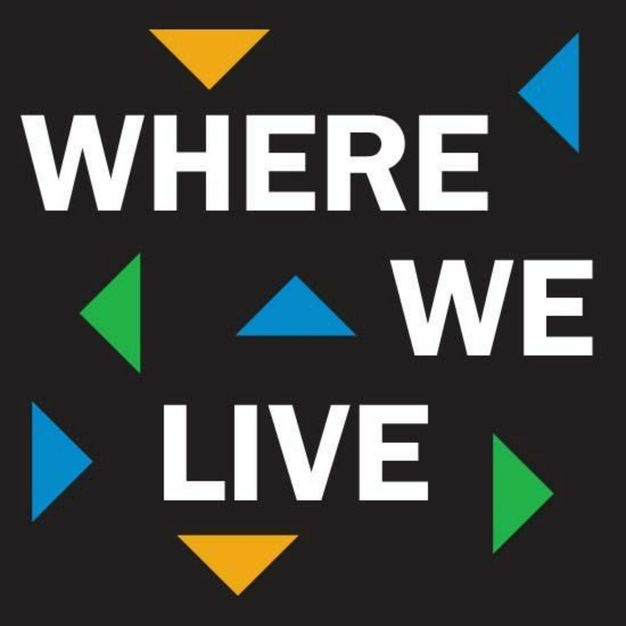
Where We Live
Connecticut Public Radio
Where We Live is a call-in talk show about who we are in Connecticut and our place in the world.
- 49 minutesConnecticut immigration experts weigh in on the next Trump presidency
President Donald Trump was sworn in yesterday.
On the campaign trail, he promised to sign several executive orders once he took office, including sweeping changes to immigration laws.
This hour, we’ll break down what we’ve seen so far, and what executive orders we could expect in the weeks to come. Later, we hear from immigration experts in our state, to learn how Connecticut residents could be affected.
Do you, or a loved one, have questions about your rights as immigrants?
GUESTS:
- Tabitha Sookdeo: Executive Director of CT Students for a Dream
- Caroline Sennett: Director of Immigration Legal Service, Connecticut Institute for Refugees and Immigrants
- Ximena Bustillo: DHS and Immigration policy reporter at National Public Radio.
Support the show: http://wnpr.org/donate
See omnystudio.com/listener for privacy information.
21 January 2025, 3:40 pm - 49 minutesA look back at inauguration days throughout history
Every four years on January 20th, Washington, D.C. braces for the start of a new presidency. Inauguration days date back to 1789 when George Washington was the first American president sworn into office.
This hour, we’re joined by a member of the White House Historical Association and a history professor from Eastern Connecticut State University to walk through Inaugural history.
And this year, Inauguration Day and Martin Luther King Jr. Day observances fall on the same date for the first time in 28 years. Our guests explain how this overlap may impact the day’s processions.
GUESTS:
- Thomas Balcerski, Presidential Historian, Eastern Connecticut State University
- Matthew Costello, Chief Education Officer, White House Historical Association
Support the show: http://wnpr.org/donate
See omnystudio.com/listener for privacy information.
20 January 2025, 12:55 pm - 49 minutesCT Attorney General William Tong on preparing for "Trump 2.0"
Trump has vowed to end birthright citizenship in the first month of his presidency. Connecticut Attorney General Tong is the son of immigrants and he says if that happens, he will be the first to sue.
Today, Connecticut Attorney General William Tong joins us in the studio for the hour.
We’ll discuss his top priorities for 2025, including holding tech companies accountable, protecting reproductive care in our state and a plan to challenge some policies proposed by President-Elect Donald Trump.
It’s a conversation you won’t want to miss.
GUESTS:
- Connecticut Attorney General William Tong
- Lisa Hagen: Federal policy reporter for Connecticut Public and CT Mirror
Support the show: http://wnpr.org/donate
See omnystudio.com/listener for privacy information.
16 January 2025, 4:11 pm - 49 minutesThis Dry January, local dry spots celebrate the joy of sobriety
Dry January is a month-long campaign that revolves around cutting out alcohol or reducing alcohol intake for the month of January.
Today’s guests say that life without alcohol can be joyous, and they’re creating spaces for the sober and sober curious to try it out.
We talk to two owners of sober spaces in our state, and try out some mocktails they’ll bring to share.
We also hear how our relationship with alcohol is changing overall. Research shows that Gen Z is becoming the sober generation.
GUESTS:
- Dr. J Craig Allen MD: Medical Director at Rushford and Vice President of Addiction Services at Hartford Healthcare
- Frances McGrath: Founder of Reframe: A Dry Spot in Willimantic
- Bobbi Malateseta: Creator of 3-2-1 No Kidding Sober Space and Bottle Shop in Naugatuck
Support the show: http://wnpr.org/donate
See omnystudio.com/listener for privacy information.
14 January 2025, 4:39 pm - 49 minutesConnecticut Department of Education Summit centers students with disabilities
Students with disabilities can experience many challenges in the classroom, from discrimination to a lack of accommodations.
So, how can schools help these students feel like they belong?
That question was the focus of a special summit hosted by the state’s Department of Education in November.
The event brought together students, educators, parents, and more to highlight the experiences of students with disabilities and how we can better support them.
Watch the full panel discussion on CT-N.
Where We Live is available as a podcast on Apple Podcasts, Spotify, Amazon Music, TuneIn, Listen Notes, or wherever you get your podcasts. Subscribe and never miss an episode.
Support the show: http://wnpr.org/donate
See omnystudio.com/listener for privacy information.
9 January 2025, 11:00 am - 49 minutesAuthor Scott Shigeoka on getting curious about curiosity
Author Scott Shigeoka has spent a lot of time being curious about curiosity. It started with a trip across the country, meeting people with very different views than him and finding ways to build connections across political lines.
In his book Seek: How Curiosity can Transform Your Life and Change the World, Scott describes ways to bring curiosity to our lives and our relationships.
There’s many ways to build curiosity. It may even be contagious! But there are also several deterrents to curiosity, or curiosity killers. But becoming more curious could start with challenging our own thinking.
GUEST:
-
Scott Shigeoka: author of Seek: How Curiosity can Transform Your Life and Change the World
Where We Live is available as a podcast on Apple Podcasts, Spotify, Amazon Music, TuneIn, Listen Notes, or wherever you get your podcasts. Subscribe and never miss an episode.
Support the show: http://wnpr.org/donate
See omnystudio.com/listener for privacy information.
7 January 2025, 11:00 am -
- 49 minutesWhere We Live celebrates the New Year
Today, we’re celebrating the New Year. Are you making New Year’s Resolutions this year?
New Year's Resolutions come in all shapes, sizes, and themes. New Year's resolutions are often about making drastic changes, but they don’t have to be.
From fitness and health to relationships, friendships and spirituality, there’s no one resolution that will help you make the most out of 2025.
We’ll share some of our intentions going into the New Year, and reflect on 2024. And we want to hear from you too!
GUESTS:
-
Chion Wolf: host of Audacious with Chion Wolf
-
Robyn Doyon-Aitken: Deputy Director of Audio Storytelling and Talk Shows
Where We Live is available as a podcast on Apple Podcasts, Spotify, Amazon Music, TuneIn, Listen Notes, or wherever you get your podcasts. Subscribe and never miss an episode.
Support the show: http://wnpr.org/donate
See omnystudio.com/listener for privacy information.
2 January 2025, 11:00 am -
- 49 minutesCT state and city poet laureates have their 'boots on the ground' in poetry
Poet laureates do a lot more than write poetry.
Since 1985, Connecticut state poet laureates have worked to promote the literary arts and poetry throughout the Nutmeg state, visiting schools, performing spoken word and passing on poetry to the next generation of writers.
There is no straight path to this position. Some of our guests today have been writing poetry all their lives. Others got bitten by the poetry bug a little later.
Today, three poet laureates from around our state join us in the studio.
GUESTS:
-
Antoinette Brim Bell: Connecticut State Poet Laureate
-
Nadia Sims: Manchester Poet Laureate
-
Frederick-Douglass Knowles II: Hartford Poet laureate
Where We Live is available as a podcast on Apple Podcasts, Spotify, Amazon Music, TuneIn, Listen Notes, or wherever you get your podcasts. Subscribe and never miss an episode.
This show originally aired on August 13, 2024.
Support the show: http://wnpr.org/donate
See omnystudio.com/listener for privacy information.
24 December 2024, 11:00 am -
- 49 minutes 6 seconds‘Generation Barney’ why we love to hate this purple dinosaur
Why do we revisit the things we loved as kids? What’s the lasting power of our favorite TV shows and movies? A new podcast from Connecticut Public looks for answers in a big, purple dinosaur. It’s called Generation Barney.
This hour, we listen to episode 3 of the podcast – “Love 2 Hate.”
And later, we’re joined by an expert in anti-fandom, Emily Contois, who explains why people connect over shared hatred.
GUESTS:Emily Contois, Media studies professor and faculty in residence, University of Tulsa
Support the show: http://wnpr.org/donate
See omnystudio.com/listener for privacy information.
23 December 2024, 4:32 pm - 48 minutes 7 seconds‘Generation Barney’ how toys drove this TV show’s success
Back in the 90s, Barney the purple dinosaur was everywhere, including in our living rooms. If you were a kid or a parent back then, chances are good that you had a stuffed Barney lying around your home.
This hour, we listen to episode 4 – “Purple Capitalism” – of Connecticut Public’s new podcast, Generation Barney.
And later, we’re joined by an expert in toy studies, Meredith Bak, who explains why merchandise played a big role in the TV show’s success.
GUESTS:
Meredith Bak, Associate Professor of Childhood Studies, Rutgers University – Camden
Support the show: http://wnpr.org/donate
See omnystudio.com/listener for privacy information.
23 December 2024, 4:13 pm - 48 minutes 30 secondsLocal author and pilot on diversity in aviation and her path to flight
As the author of the children’s book My Mama is a Pilot, Saba Shahid says she wants children to feel “represented and valued” through her stories.
Only 1% of commercial airline pilots are women of color. And Saba Shahid’s path to becoming a pilot is a little bit different than most. It actually started as a pandemic hobby!
Saba Shahid is this year’s recipient of the Girl Scouts Legacy of Leadership Award. She joins us for the hour to talk about her remarkable career, and her work as a Lifetime Girl Scout.
GUESTS:
-
Saba Shahid: Author, pilot, and recipient of this year's Girl Scouts of Connecticut 2024 Legacy of Leadership Award
-
Elicia Pegues Spearman: CEO of the Girl Scouts of Connecticut
-
Stephanie Abrams: President & CEO of the New England Air Museum
Where We Live is available as a podcast on Apple Podcasts, Spotify, Amazon Music, TuneIn, Listen Notes, or wherever you get your podcasts. Subscribe and never miss an episode.
This episode originally aired September 17, 2024.
Support the show: http://wnpr.org/donate
See omnystudio.com/listener for privacy information.
23 December 2024, 11:00 am -
- More Episodes? Get the App
Your feedback is valuable to us. Should you encounter any bugs, glitches, lack of functionality or other problems, please email us on [email protected] or join Moon.FM Telegram Group where you can talk directly to the dev team who are happy to answer any queries.
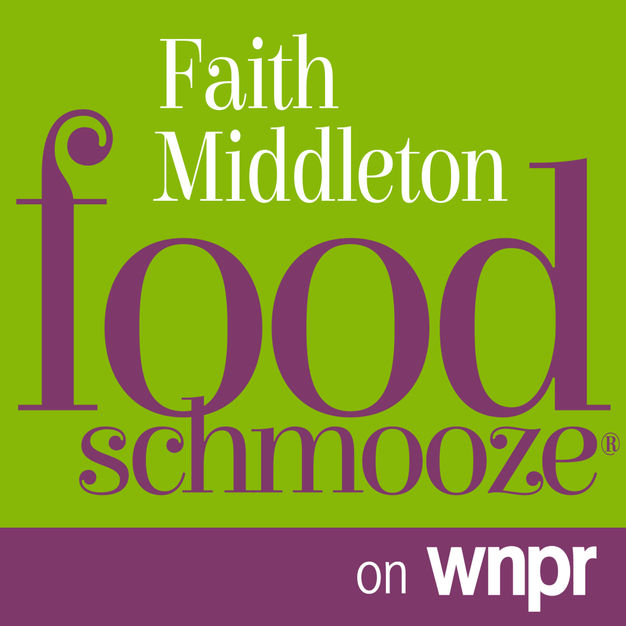 Faith Middleton Food Schmooze
Faith Middleton Food Schmooze
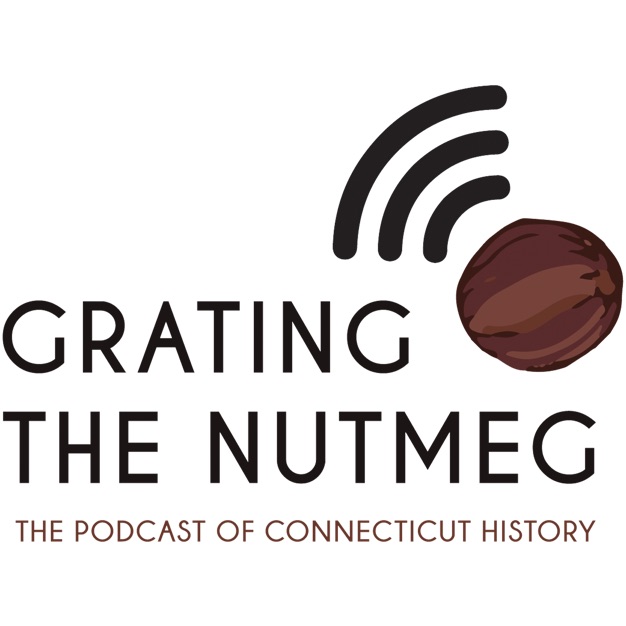 Grating the Nutmeg
Grating the Nutmeg
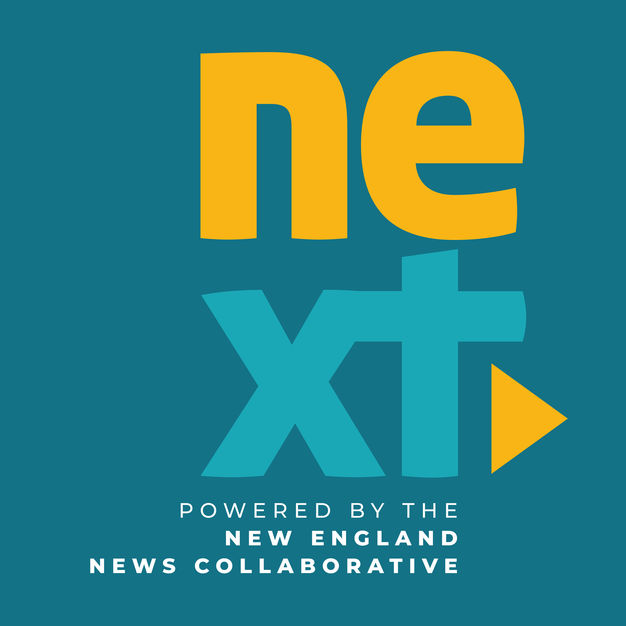 NEXT New England
NEXT New England
 Capitol Watch
Capitol Watch
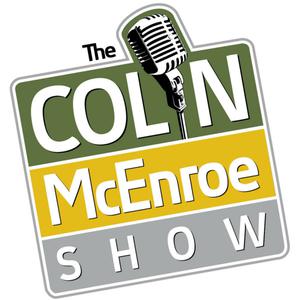 The Colin McEnroe Show
The Colin McEnroe Show